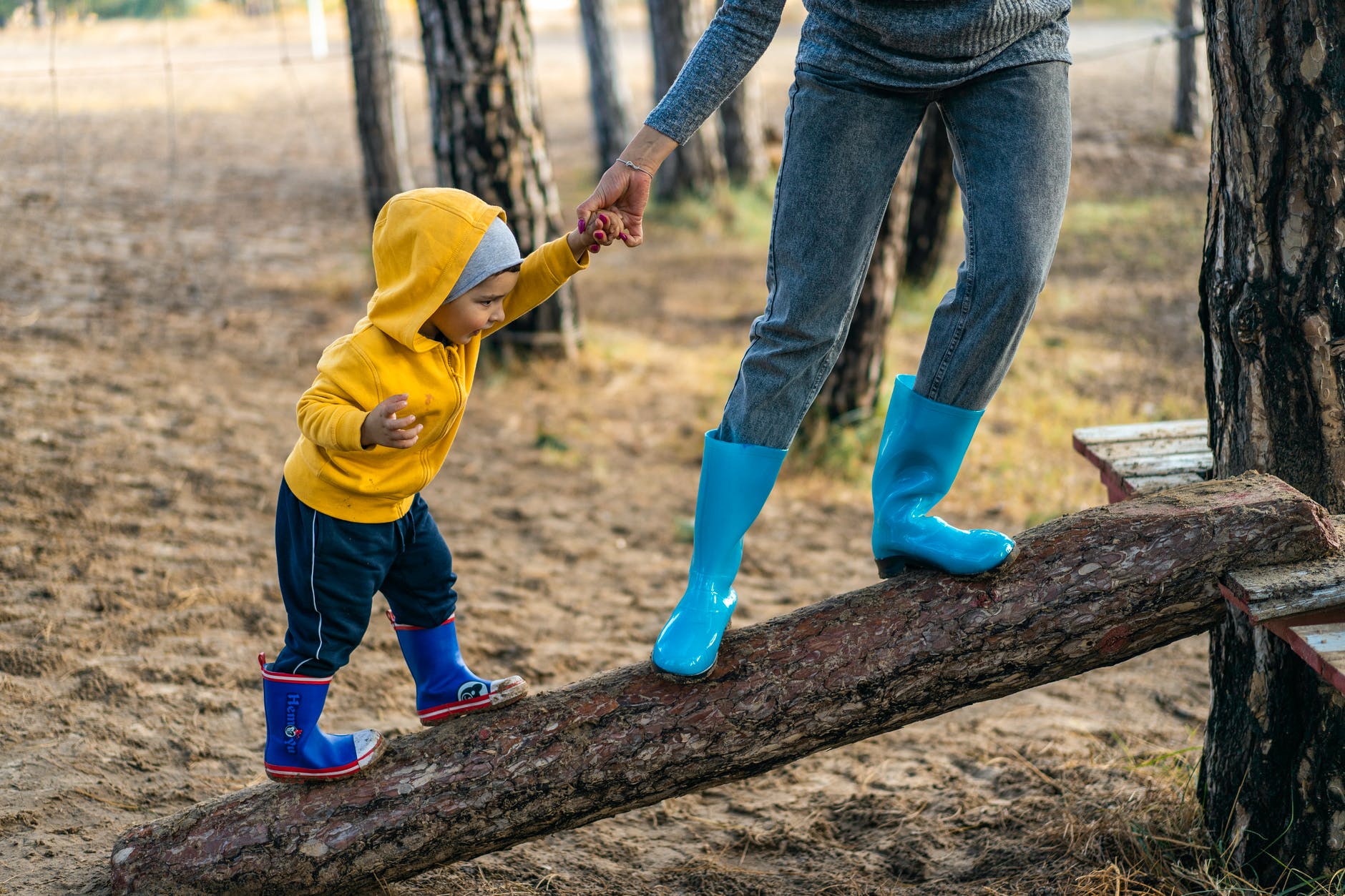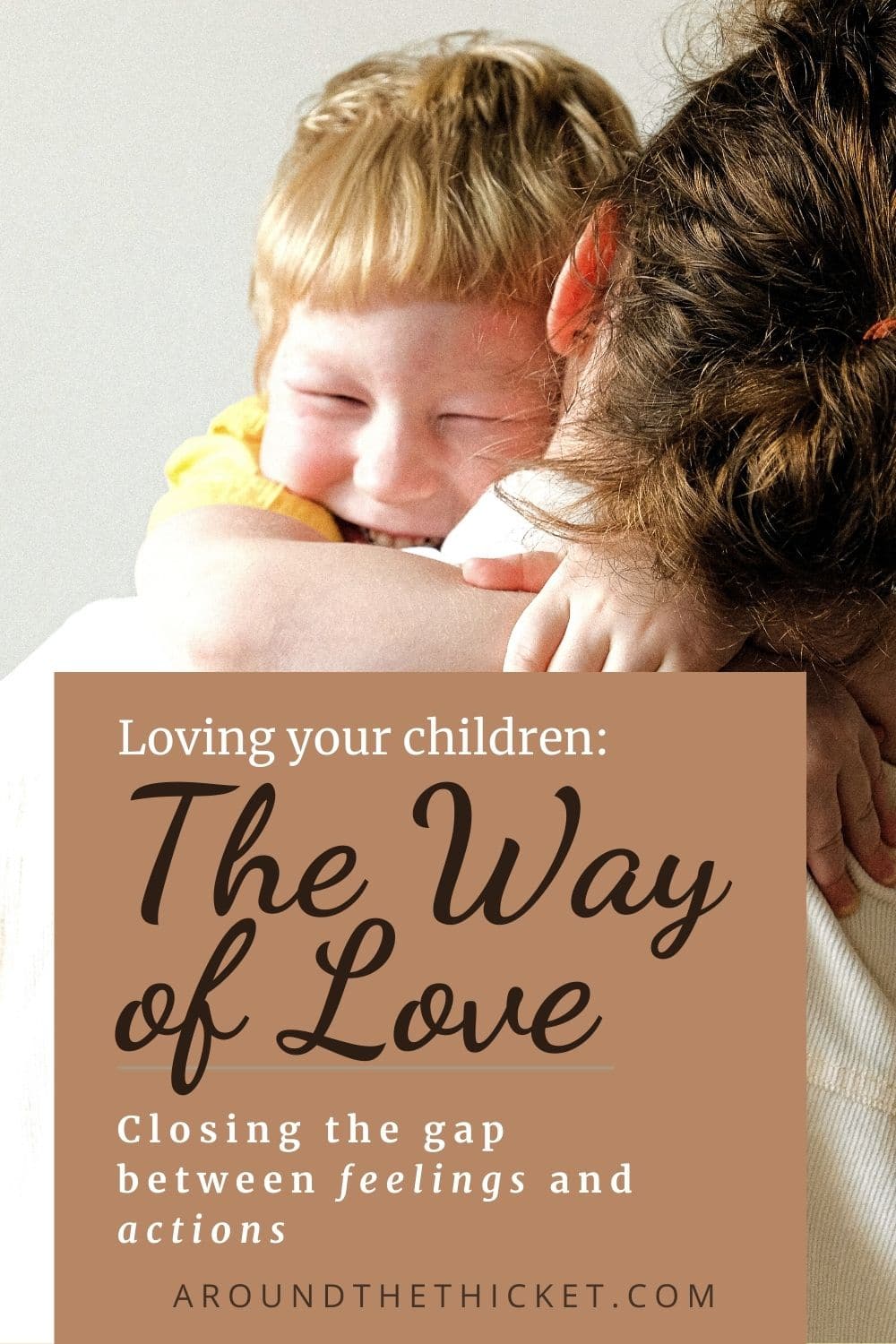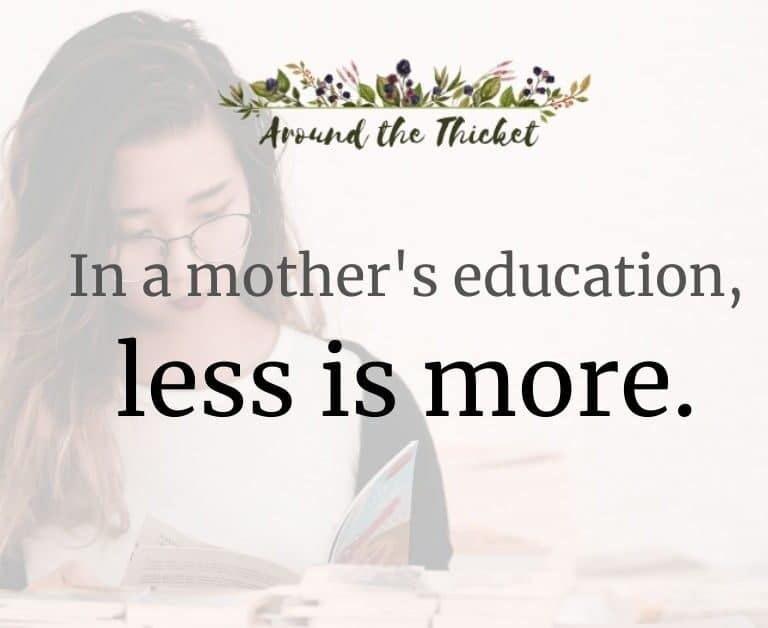The Way of Love: Loving your Children
If I wake early to read my Bible and pray, and have not love when my children interrupt me, I am only a donkey in a lion’s skin. I may hide under a mane of righteous actions, but the bray of self-centered entitlement exposes me. If love is patient and kind, I am anything but loving in these moments. As I grow as a mother, I return to the idea of love time and time again, wanting to live out more fully the greatest of Christian virtues, asking myself again what love is, what it looks like lived out, and how I can love my family more.
The Definition of Love: Feeling and Choice
I remember looking up the definition of agape love in a Bible concordance as a teenager, long before I met my husband. I still find the definition provoking and inspiring. “Love is a decision to act in the best interest of someone else, whether or not it is what they want.” I took this idea deeply to heart: that love is primarily a choice, and only secondarily a feeling. Romance was a lovely idea, but I knew that emotions alone would make a poor foundation for marriage. I saw the virtue of Elinor Dashwood and Jane Bennet over Marianne and Lydia.
The concept of choice over feeling also colored my thoughts about raising children. I knew having children would require selflessness, and expected that I would need to choose love and choose to put their interests before my own countless times a day. I also expected I would rise to the challenge. I would become a measured, temperate, self-sacrificing Austenite heroine.
Sacrificial Love in Real Life
Now that the children are a reality, I find that I was right about my need for selflessness, and yet I am nothing like Elinor or Jane. I wonder if they encountered similar surprises after their marriages and the end of their books.
My expressions of love are inverted from the original definition of agape. I have no shortage of loving emotion. I cry a bit on birthdays and when we measure the boys on their growth chart. I look back at pictures, look upon their sleeping faces, now missing teeth that seemed to have just come in, and feel the pang of fleeting time.
The emotion flows in moments of quiet reflection, but what about when my children are awake, noisy, and needy? When I am actually faced with a choice between serving my children and serving myself, I do typically choose to do what needs to be done. I cook, tidy, help, and teach. But my mind often runs on what I will do when I’m finished. I want to tick off the jobs on my list so I can do what I want to do.
This approach is a recipe for resentment and a short temper. I might close my Bible to help the kids make breakfast, but I will not be happy about it. A get-it-over-with attitude is not loving – neither in feeling nor in deed. Perhaps love isn’t so much about choosing to do the right thing. Maybe it’s more about choosing the right attitude toward the people in my life.

Reasonable Grounds for Self-love
This is not to say that I, or anyone, should live a life of self-neglect. Charlotte Mason writes in her fourth volume, Ourselves, that self-love is “a Love which is lawful and necessary, or we should not take care of our own lives, property, or interests at all. We cannot do without Self-love, or we should become a burden and trouble to other people”. As a person, I need to give myself my proper care. To neglect a healthy diet, exercise, spiritual disciplines like prayer and Bible reading, and intellectual growth would leave me needy, a burden on others, and ill-prepared to meet the needs of those around me.
My problem is not that I should not love myself, but in forgetting that these needs are not unique to me, but are common to all humankind, including my children. So my craving for peace, for rest after work, for companionship, conversation, and stimulation, should not be points of contention with my children, a them-versus-me battle, but points of connection. “You are hungry and tired? I know the feeling, and I feel it myself.” Self-love, rightly lived, does not end with the self. Rather, it connects individuals with the community of humanity. We are all more alike than different, and to show love, I must adopt an attitude that seeks connection.
Love’s Lords-in-Waiting
Charlotte Mason’s writing on self-love reminds me I am not in competition with my children for who gets their needs met. However, we do negotiate to accommodate one another, and I find this challenging in the midst of busy family life. While a daily quiet time is a legitimate need, I use illegitimate means to secure it, braying at my children and giving my tongue free rein. My sense of entitlement goes on full display.
This is not the way of love. “Love, like a king, has his Lords in Waiting––Pity, Benevolence, Sympathy, Kindness, Generosity, Gratitude, Courage, Loyalty, Humility, Gladness,” writes Charlotte Mason. A lord-in-waiting “may be periodically called upon to represent the sovereign”. Likewise, each of Loves’ lords-in-waiting is the representation of love in my relationship with my children. When my children experience my benevolence, loyalty, or humility, they experience my love. It is these qualities, these attitudes, that I want to grace our interactions.
The negotiation of needs must come through Love’s lords-in-waiting rather than entitlement. I may need to read my Bible and pray (or shower, or even read a novel). I can even argue that it is in the best interests of my children to do just this. However, my children need me to protect that time with love and respect toward them, otherwise my example may well do more harm than good.

Love is the First Agent in Education
“Maternal love is the first agent in education,” wrote educational reformer Pestalozzi in his Letters on Infant Education. To him, a mother’s love for her child inspired the child’s love in return. This allowed a child to be brought up without harsh punishment with their feet set towards Christ and his service. There is beauty in this. If I love because Christ first loved me, then my outpouring of love on my children germinates their capacity to love, and out of this capacity, I am enabled to parent less by the letter of the law, and more out of a fruitful, loving relationship with my children. And even more, my children learn more than about loving their family: they learn about loving Christ and His family. As Pestalozzi declared, love is essential to education.
The Lords of the Heart: Love
This brings me back to the discord between my feelings of love and my unloving attitudes. How do I take the feelings of love and manifest them in my daily interactions with my children? If love isn’t all sentiment, but a virtue embodied in relationship, choice, attitude, and action, what will that look like each day? In short, what does love look like when lived out?
I have plenty of examples to consider. I can think back to my childhood and my parents’ consistent love toward me and my siblings. I can even look at the many times a day where I choose to put my ambitions aside to serve my family. I have read countless books on love, both fiction and non-fiction. My question, though, moves just beyond the examples and looks at the connections between them. It is about understanding how the examples fit together. This is the purpose of Charlotte Mason’s fourth volume, Ourselves: to give a map of human character, a frame for puzzle piece examples we encounter in life and reading.
In Ourselves, Charlotte Mason discusses the way of love and spends several chapters exploring the many facets of love-lived-out, Love’s lords-in-waiting, mentioned above. Over the coming months I plan on exploring each chapter from the section The Lords of the Heart: Love in turn.
Want to find your feet with the Charlotte Mason Way?

Grab my eight day mini course on the Charlotte Mason Essentials when you subscribe to my newsletter. You’ll get daily emails, a mini podcast series, and a printable workbook with reading assignments and action steps. You’ll be on your Charlotte Mason journey in no time!






